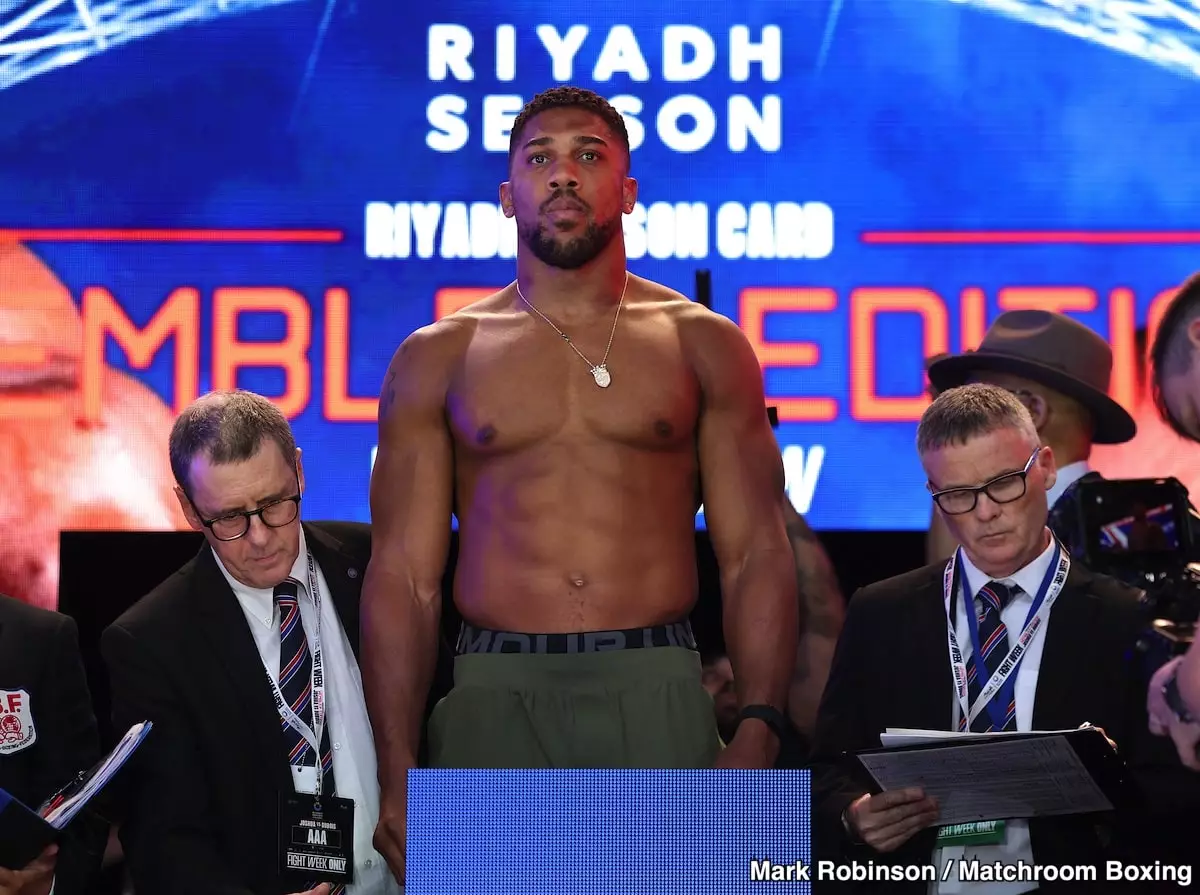The landscape of heavyweight boxing is shaped not just by the fighters in the ring but also by the promoters who navigate the complex relationship between athlete and audience. Eddie Hearn, a prominent boxing promoter, recently emphasized his intention to deliver the long-anticipated matchup between Anthony Joshua and Tyson Fury to the British public in 2025. However, amidst the eagerness and expectation, significant questions arise regarding the relevance and desirability of such a fight.
Eddie Hearn’s statement that he “must deliver” the Joshua versus Fury bout can be interpreted in various ways. For many fans, it betrays a sense of urgency dictated not solely by public demand but by financial incentives. Joshua, with a professional record of 28 wins (25 by knockout) and 4 losses, faces key contenders that could shape his future. Notably, each of these matchups appears to be motivated by the promise of lucrative returns rather than a genuine quest for sporting legacy.
Moreover, Hearn contemplates a vital rematch against Daniel Dubois, the current IBF heavyweight champion, alongside the potential clash with Fury. This two-fight trajectory suggests a strategic approach where Hearn weighs the commercial viability of each fight against fan interest. As the narrative unfolds, many insiders and fans speculate that a fight between Joshua and Fury may no longer captivate audiences the way it once could have, with some believing the fight has surpassed its peak moment.
The Audience Perspective
The anticipation for a match between Anthony Joshua and Tyson Fury has simmered for years, evoking a “Battle of Britain” narrative that resonates on multiple levels. However, as time passes, fans have begun to question whether the fight remains relevant. Many suggest that placing Fury against Dubois, rather than reviving a matchup with Joshua, may provide a fresher and more exciting storyline. In the eyes of the public, feeding Fury to Dubois may yield more excitement than a long-anticipated but seemingly stale exchange between Joshua and Fury.
This sentiment is further underscored by the skepticism about Fury’s mental state following his recent loss to Oleksandr Usyk. Fury, who holds a record of 34 wins (24 KOs), 2 losses, and 1 draw, faced a tough decision in the aftermath of a closely contested match, where he fell short on all three judges’ scorecards with a score of 116-112. Yes, the contest was hard-fought, yet many can’t shake off the feeling that Fury’s subsequent withdrawal from the public eye speaks volumes about his readiness to re-enter the ring.
Fury’s Mental State: The Elephant in the Room
The psychological toll of defeat on athletes—especially those with the stature of Tyson Fury—is not to be underestimated. Hearn hinted at Fury’s potential reluctance to continue competing, noting that the heavyweight champion might still be grappling with the implications of his recent loss. The juxtaposition of Joshua’s proactive approach on social media with Fury’s apparent introversion paints a compelling picture of a heavyweight division teetering on the brink of transformation.
Fury’s comments post-fight indicated personal disappointment, suggesting he believed he had claimed victory. This mindset, if unchecked, may hinder his motivation to return, making the potential Joshua vs. Fury fight a less tantalizing proposition. The boxing world is left pondering: if Fury is physically capable of entering the ring again, will he mentally embrace the challenge, or does he seek an alternative path away from the spotlight?
Hearn’s unyielding push to stage the Joshua-Fury matchup reflects his awareness of the financial stakes involved, yet it also underlines the intrinsic conflict between commercial success and genuine sporting intrigue. The scenario becomes more complex when considering Joshua’s aspirations for a dominant return to form, as well as the burgeoning rivalry with Dubois.
Promoters play a crucial role in defining narratives within boxing, and Hearn’s future decisions could set the tone for how boxing fans engage with heavyweight matchups moving forward. If Joshua secures victories against Dubois and rises back into title contention, the Joshua-Fury match may regain its allure. However, should Fury decide against further competition, boxing could be left searching for a narrative that resonates on both an emotional and financial level.
As 2025 approaches, the intersection of ambition, public interest, and financial pragmatism will shape the future landscape of heavyweight boxing. Both Joshua and Fury have compelling narratives that need to be carefully managed to ensure that excitement not only remains but grows within the sport.


Leave a Reply